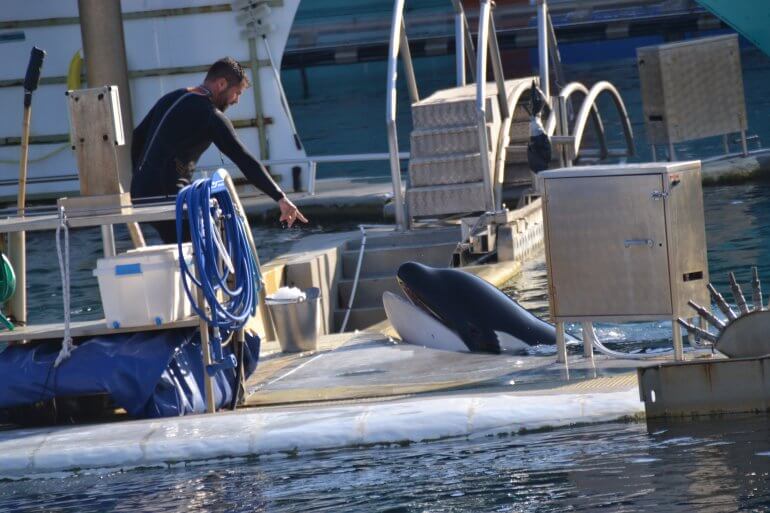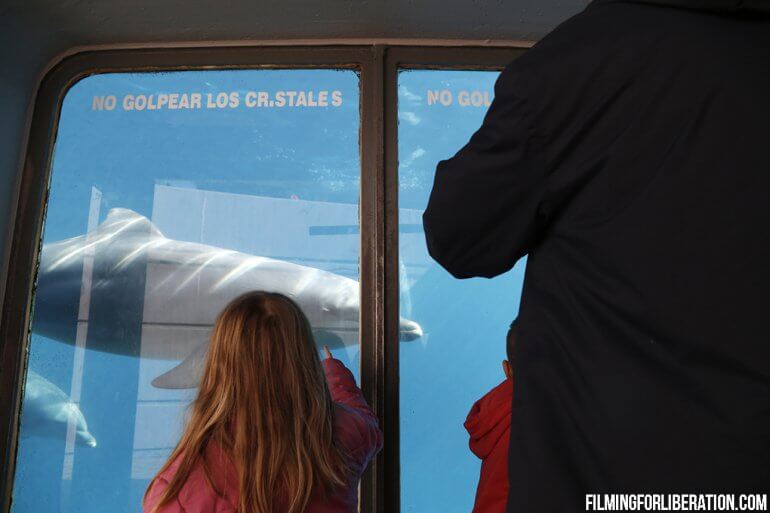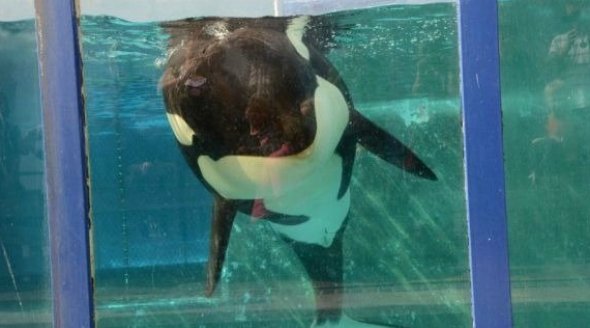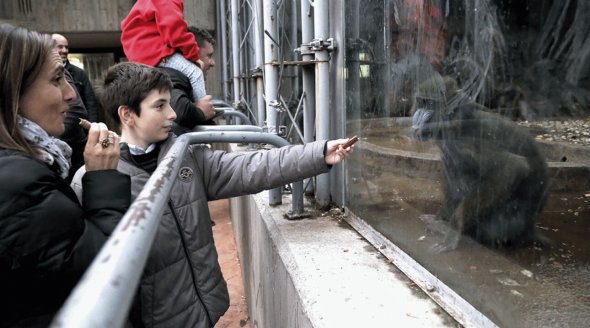Zoo Lobbyists Trying to Fight France’s Orca-Breeding Ban
While compassionate people around the world celebrated France’s decision to ban captive breeding of orcas and other dolphins, the membership organisation of zoos and aquaria in Europe hit out against the kind move for animals.

In a statement issued online, the European Association of Zoos and Aquaria (EAZA) wrote that it – along with its 400 members, which include the London and Edinburgh zoos – is “extremely concerned” about the French ban.
Marine parks’ business models rely on breeding animals so that their young can be displayed for profit in tiny concrete tanks. No one with a conscience would support such wantonly cruel treatment of intelligent, naturally ocean-dwelling mammals. But the zoos’ lobby group is fighting to keep their dying businesses alive.
The EAZA claims that there “is no scientific basis … for banning the keeping and breeding of bottle-nosed dolphins or indeed any other species held in zoos”, something that most marine-mammal experts would strongly refute and that common sense tells us is absurd, given that marine parks are unable to meet these animals’ complex physical and psychological needs.
Many animals in marine parks are drugged in order to manage stress-induced aggressive behaviour, a direct consequence of the frustration and endless monotony of having no other choice but to swim in circles. Captive orcas are frequently found to have broken teeth as a result of chewing on the metal bars and concrete sides of their tanks. These social animals would live in large pods for their entire lives in the wild – something no marine park can accommodate. The industry is built on the suffering of intelligent, complex beings who are denied everything that is natural and important to them. So it’s no wonder that so many orcas and other dolphins in such facilities die prematurely from stress and other captivity-related causes.
The EAZA also asserts that “[d]isplaying dolphins and other animals held by zoos has a positive effect on the attitude of humans towards nature …. The concern shown by members of the public towards cetaceans and the marine environment is testament to the success of this role.” But there’s no significant evidence to support this claim, and conversely, since the release of the documentary Blackfish, huge numbers of people – many of whom have never visited a marine park – have supported cetaceans by joining campaigns against companies such as SeaWorld and demanding that they release the orcas held captive in their concrete pools. As a result, around the world, marine parks’ profits are tanking – evidence that the general public doesn’t need to pay to see depressed animals kept in miserable conditions in order to care about them.
Perhaps the most outrageous claim from the zoo lobbyists is that dolphins should be bred in zoos and aquaria because “[s]ocial animals like bottle-nosed dolphins further profit from the presence of young and adolescent animals as they enrich the social patterns in the group by their unexpected and challenging behaviours”. It’s true that experiencing natural forms of behaviour is important to these animals, which is why they shouldn’t be made to suffer in tiny concrete tanks, unable to fulfil even their most basic needs. If zoos really cared whether or not dolphins were able to establish social patterns and engage in other instinctive types of behaviour, they’d release the animals they currently imprison into seaside sanctuaries that can offer them more space in which to swim and dive, a more natural environment with novel and dynamic elements, the possibility of communicating with wild dolphins, the opportunity to learn how to hunt and solve problems, and the freedom to choose what they want to do and when and where to do it – rather than attempting to justify sentencing more of these highly intelligent animals to a lifetime of misery in watery prisons.
The EAZA’s response to France’s progressive step towards ending the keeping of orcas and other dolphins in captivity, something anyone who genuinely cares about marine mammals would support, tells us everything we need to know about what motivates the zoo industry – and it clearly isn’t animal welfare. Facing backlash from the increasingly concerned public, zoos are desperately trying to convince people that by locking animals up in tanks or cages, they’re helping rather than harming them. But people are no longer buying it. The tide is turning, and in our hearts, we now know that watching orcas and other dolphins float listlessly in tiny, barren concrete tanks is neither educational nor entertaining and certainly not in their best interest.
What You Can Do
Until every last animal is free, PETA urges kind people everywhere to join us in campaigning against marine abusement parks by taking the following action:
- Although no dolphins or whales are held captive in the UK, some British tourists still support cruelty by visiting parks such as Marineland or SeaWorld while on holiday abroad. If you see that a travel company is advertising trips to marine parks, please write and ask it to end all promotions of this abusive industry.
- Never visit a marine park, an aquarium, or any other tourist attraction which exploits animals to make money. Instead, learn about majestic and fascinating marine mammals by watching documentaries about their lives in their native habitats or by going on a whale-watching trip to try to observe them in the wild.
- If you haven’t already, watch Blackfish and encourage your friends to do the same.






